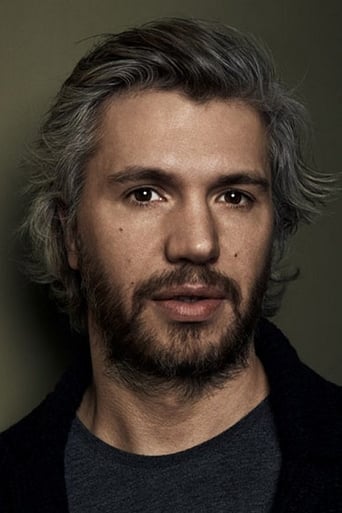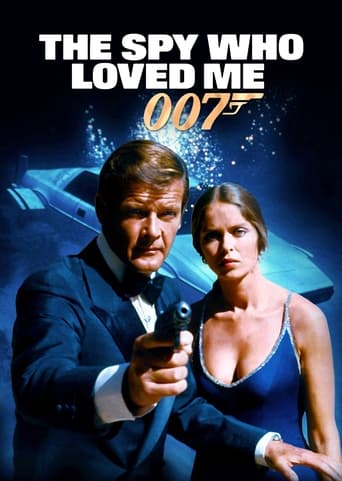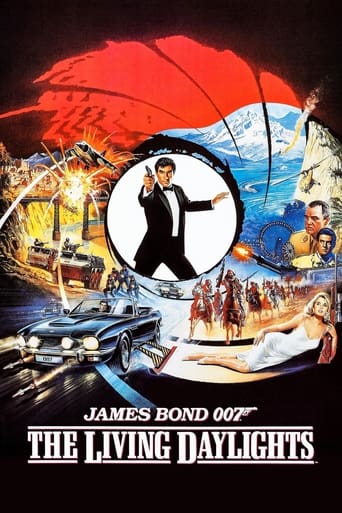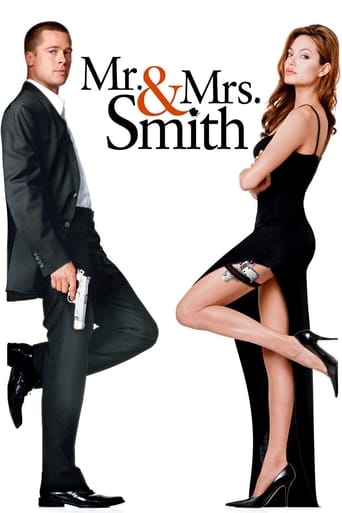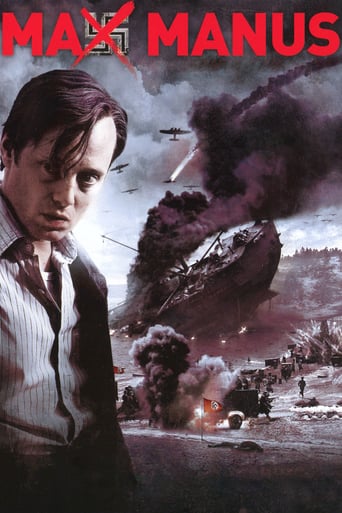
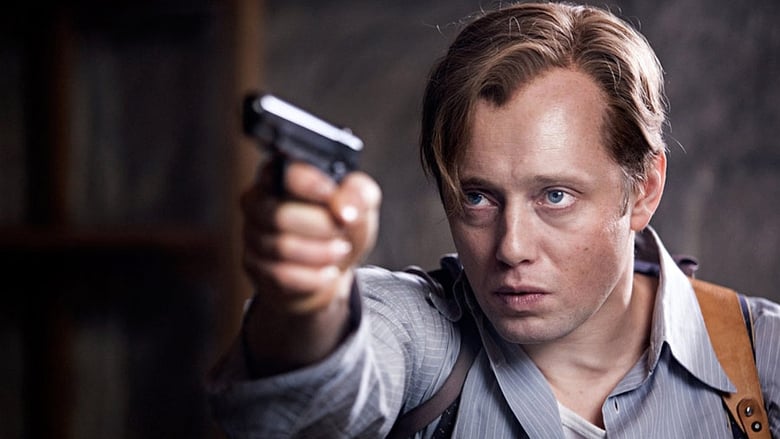
Max Manus: Man of War (2008)
Max Manus is a Norwegian 2008 biographic war film based on the real events of the life of resistance fighter Max Manus (1914–96), after his contribution in the Winter War against the Soviet Union. The story follows Manus through the outbreak of World War II in Norway until peacetime in 1945.
Watch Trailer
Cast


Similar titles
Reviews
This multi-language film was made in Norway and celebrates a genuine hero of the Norwegian underground from World War II. Many films have been made about the French underground and resistance movements in other countries, including Norway. Only since the fall of the Iron Curtain (circa 1990), has the Western world been able to see some of the fine movies made about WW II in Eastern European countries. While an occasional WW II movie is still made in America, European war films tend to be superior since the turn of the 21st century. One would expect that to be the case with the nations where the war was fought. The memories, records and stories aren't so soon forgotten in the places where people lived through the horror, fear and oppression, and so many lost their lives.A few very good films have been made about Norwegian resistance. The earliest of those, "The Day Will Dawn" (aka, "The Avengers"), was made and released in Great Britain in June 1942. "Commandos Strike at Dawn," was a Columbia movie that came out Dec. 30, 1942. It was shown in the United Kingdom and the Americas in 1943. It made theaters in neutral Sweden in March 1944. "The Moon is Down" was a 1943 film by 20th Century Fox. It is about the German takeover of a Norwegian mining town, and the local resistance to the Nazis. These are among the best of the Norwegian underground movies. "Max Manus: Man of War" joins that list. This is a Norwegian film about a hero who led a life rife with killing for a war effort. It was made in 2008, a little over a decade after Manus died. It is one of the very best of all films made about Nazi resistance during World War II. This is an easy film to follow with English subtitles. The cast will mostly be little known west of the pond, but all do very well. Aksel Hennie is superb as Max Manus. Hennie portrays Manus as a man who loved his native country and was willing to fight to free it – even to death. But he also shows the emotional battles that Manus struggled through. He has flashbacks about killing an enemy soldier in Finland. He weeps over friends who are killed. And, he makes cold calculating decisions for actions that may kill innocent people. So, this film shows the inner turmoil and struggles over killing. Manus was something of a soldier of fortune before WW II. He had traveled to and worked in the jungles of South America and Latin America. The film shows his volunteer fighting for Finland in 1939-40 when Russia invaded that country. The film can't show all of the story, obviously, but before Manus got to England and Scotland for training, he was in the U.S. and Canada. When the USSR entered the war, Manus escaped from Norway east across Scandinavia to Russia, then down to Turkey and by ship to Capetown and on to America. He began training in the U.S. and Canada before crossing the Atlantic to England. The film has a nice ending, as it really happened, with Manus riding in a victory car as the main guard to the prince of Norway. He was attracted to his British embassy contact in Stockholm, Tikken Lindebraekke. At the end of the movie, she goes off with her husband and daughter. In real life, Manus and Tikken were married in 1947. After the war, Manus had a successful office supply company. He had frequent nightmares and bouts of depression with alcoholism. He wrote books about his earlier adventures and the war, and gave interviews. He lived to age 81, and died Sept. 20, 1996, in Spain. He and Tikken moved there after retiring.In spite of some of the technical aspects of this film, I rate it highly. The jumpiness of the cam shots is distracting and doesn't help the film. The plot does skip too abruptly in places, and I suspect that is due to some cutting during the edit to keep the film from being too long. Still, because of the detailed treatment of the Norwegian resistance surrounding this one man and his cohorts, I give the movie nine stars. It gives a real-life picture that we haven't seen in many resistance films set during WW II.
It is always tricky to depict events related to painful periods of history as views of witnesses and historians can be totally discrepant. Resistance movements during occupations are definitely among them: some tend to glorify and enlarge their role, the others see them just as a way to unite people and keep up the spirit, but not an important factor in the logic of events.The focus of depiction - protagonist's hectic thoughts and doubts - is interesting, but not carried out fully (the same applies to man-woman attractions); the film's best moments are thrilling preparations for sabotage acts. As different characters spend unequal time on screen, then different actors can probably not show their skills fully; Aksel Hennie as Max Manus is, of course, great (you are most recommended to see him also in e.g. Headhunters (2011)), so is Ken Duken as Siegfried Fehmer, but all the others are not so catchy. Indeed, in this comparison, the Danish Flammen & Citroen and the Dutch Zwarte Boek dealing with alike topics are more elaborate.Nevertheless, it is a strong film based on real events and characters, and among the best Norwegian films. If you like films about different angles of the World War II, you will be satisfied.
Max Manus is a rather authentic depiction of Norwegian resistance fighters, but unfortunately not very deep. As can be expected by a Scandinavian film, it's great to see that the actors speak the right languages at the right time. Besides Norwegian they speak German, English and also some Finnish, Swedish and Russian. I can attest that all German actors speak proper German, not silly foreigners accents like in many other movies.Ken Duken in the role of Fehmer quite looks the part of a German officer. And it was nice to see an actor in the role who speaks both German and Norwegian. Yet he talks all the time with a very deep, somehow contrived voice, which I found a bit annoying. And he doesn't seem to have a character, like most people in a picture that does't go deep in showing people with real human characters. All the resistance fighters are cheerful, nice guys. There are no traitors, weaknesses or people with conflicts. That's all a bit too shallow, especially when the real Max Manus apparently had alcohol and emotional problems. Of course the film attempts to develop his friendship with Gregers, the loss of comrades and a deep love story with Tikken, but it isn't all that memorable.Special effects are OK, but not great, when CGI effects are used they stand out clearly from the rest of the picture. Especially the sinking ship at the end was really weird. I think like many films from this era it will not age well because of the CGI.Overall a very watchable film, and a solid effort of Norwegian cinema, but the complete potential is not fulfilled.
Thus speaks Wikipedia: "Max Manus (1914–1996) was a Norwegian resistance fighter during World War II. He was a pioneer of the Norwegian resistance movement and was arrested by the Gestapo in 1941. He escaped to the United Kingdom for training and went back as a saboteur for the Norwegian Independent Company 1, better known as Lingekompaniet. He became a specialist in ship sabotage, was famous for being one of the most brilliant saboteurs during World War II, and after the war he wrote several books about his adventures." Hmm, sounds like it was only a question of time before this guy's life story would be made into a movie!In its native Norway the film has been highly popular among the public which is not hard to understand considering it is a very traditional and technically well-made war film. The basis of the plot was already summarized in the first paragraph: a volunteered veteran of the Finnish Winter War, Max Manus (Aksel Hennie) is enraged to see his beloved Norway being taken over by the Nazis in the early 1940s and quickly organizes an underground resistance movement with his friends Kolbein, Tallak and Gram (Christian Rubeck, Mats Eldøen and Nicolai Cleve Broch). Ships are sunk and bullets fly but Manus never loses his hope in the face of the enemy, personified in the Gestapo officer Siegfried Fehmer (Ken Duken).The filmmakers are clearly well aware of the conventions of heroic war movies and utilize them unrestrainedly in the story. The cinematography is pleasantly brownish-yellowish in the interior scenes and creates an atmosphere of old photographs that always suits well movies set in recent history. The exteriors are also filmed beautifully, particularly the short training scenes in Scotland, and the night scenes bask in pretty twilight blue. Unfortunately the professionalism of the production also leads to overt Hollywood-style conventionality of the plot: of course there is a romance (with a woman named Tikken, played by Agnes Kittelsen), of course friends get killed, of course the good are good and the bad are bad. I understand that many of these things actually did happen in real life but since this is not a documentary, they could have been changed a little in order to spice up the tale with something more unexpected than the obvious hero plot.OK, some of the mine-setting scenes are fairly suspenseful and the story occasionally catches a beautiful sense of melancholy, most notably at the end. In general, the plot is at its most interesting when examining Manus' traumatic Winter War memories and feelings of guilt when his friends and innocent people are punished for his rebellious actions; I wish such inner demons would have been paid more attention at the expense of the Nazis, the obvious enemy. There are also some flat-out clichés in the movie, such as the bad guys being lousy marksmen, and the overly shaky camera during several emotionally charged moments annoyed the heck out of me.Be that as it may, I am sure there is an audience for Max Manus outside Norway as well. Personally the thin drama plot did not get me hooked very much but friends of traditionally heroic resistance tales should find everything they are looking for in the film. Furthermore, Aksel Hennie in the titular role bears an uncanny resemblance to a young Steve Buscemi – never a bad thing! So, go ahead and give it a look if it sounds like your kind of movie; you might end up enjoying it a lot more than I did.




